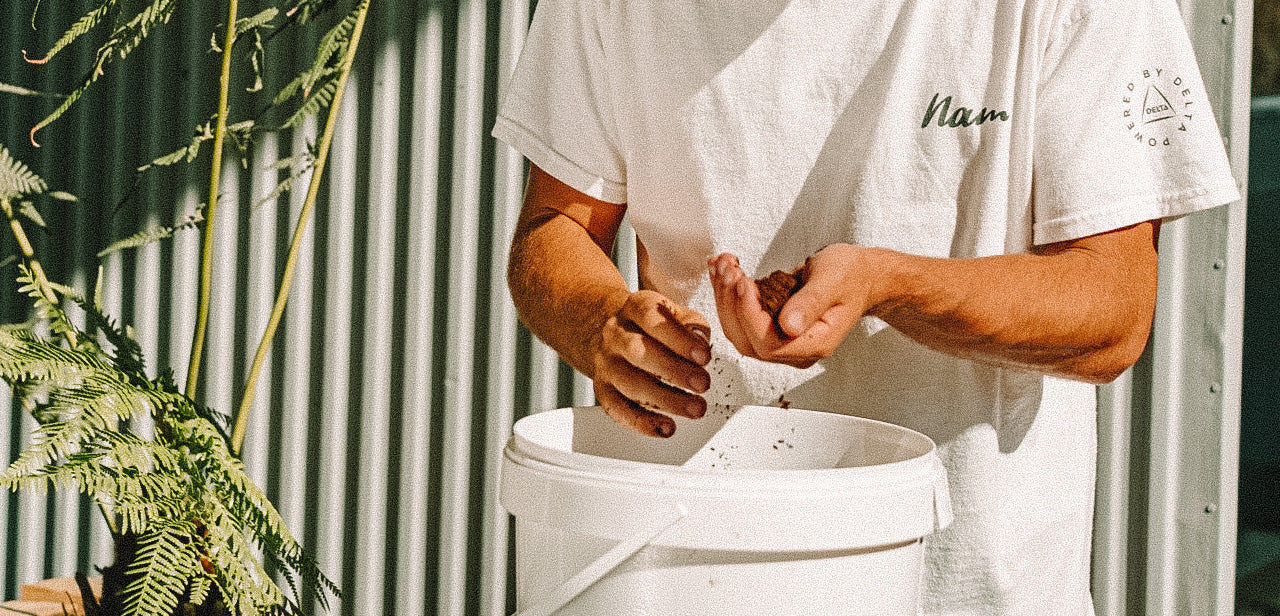
Are coffee grounds good for plants?
Are coffee grounds good for your plants? It depends. Coffee grounds can really do wonders for your time in the right circumstances, but it takes a little know-how to ensure they are used to their best advantage!
Why put coffee grounds on your plants?
After extensive research, coffee grounds have been proven to improve water flow and soil structure. Used alone, coffee grounds are easily compacted and can act as a barrier to moisture and air circulation, but mixed with a variety of other types of organic matter, they improve water retention and air circulation.
Coffee grounds also add nutrients to the soil. Research has been carried out which has revealed that coffee grounds help maintain ideal temperatures in a compost heap to speed up decomposition. Further research also revealed that coffee grounds improve soil iron, phosphorus, potassium, magnesium and copper levels.
Oregon State University did research that concluded that coffee grounds contain at least 2% nitrogen by volume! Nitrogen is essential for providing energy to bacteria in the soil - this bacteria turns organic matter into compost that plants can use for nutrition.
Coffee grounds can be used as compost and fertilizer, and the best part is that they are easy to get! Many cafes don't know what to do with used coffee grounds, so they often prefer to offer it instead of throwing it in the trash :)

What plants and soil work well with coffee grounds?
It is important to know that not all plants benefit from coffee grounds! Because coffee itself is acidic, it can interfere with normal soil pH levels if applied incorrectly. This can lead to poor plant growth, the emergence of invasive plant species and a general decrease in soil quality.
Fortunately, there are some ways to avoid these problems:
- Use coffee grounds around the soil and not on the plant. If you're not sure about the acidity levels in your garden, crushing the grounds or adding them to the soil around the plants works better than just pouring them in. This is most effective if you are using indoor plant soil.
- Analyze the acidity levels in your garden. Using coffee grounds in a vegetable garden is a good idea - many vegetables are acidic, with the exception of tomatoes. Shrubs like roses and small lemon trees also thrive in acidic soil! If you're not sure, look for a test kit (on a farm, for example).
Doing a little research before use and experimenting are the best ways to ensure you get the most out of your coffee grounds. A good rule of thumb to follow is to only use coffee grounds if the plants have been growing for a while so that the additional nitrogen doesn't overwhelm the bacteria.

Can coffee harm plants?
Coffee can stunt plant growth. Some research has determined that directly applying coffee grounds to soil significantly reduces plant growth. Even after fermentation, caffeine levels remain high enough in coffee beans to negatively affect seed germination and early plant growth.
Just as running the same beans through the coffee machine produces weaker coffee, over time, the phytotoxicity of the grounds decreases and its benefits increase. As soils mineralize, they release essential macronutrients into the soil, which attracts the microbiota which, in turn, makes these nutrients available to plants.
Other uses for coffee grounds in your garden
In addition to fertilizer and compost, there are a few more benefits to using coffee grounds in your garden! Many of these benefits have not been scientifically tested, but many farmers believe in these tips so feel free to try them!
Coffee grounds are a good repellent against cats, which often like to use gardens as a "bathroom". This could be because of caffeine, which cats instinctively avoid.
They also keep pests like slugs and snails away. High acid levels in the soil do funny things to these pests...
They are very good for earthworms. Many vermicomposting enthusiasts encourage the use of coffee grounds in worm beds, as they work directly with bacteria to decompose and convert organic waste into nutrients.
If you've never tried adding coffee grounds to your garden, now's the time! You can order the grounds from a friend who loves coffee or from your nearest coffee shop!


Leave a comment
This site is protected by hCaptcha and the hCaptcha Privacy Policy and Terms of Service apply.